President Donald Trump's policies: "The last straw"
A series of recent tough policies by the Trump administration have shaken up the research community and American universities. The federal government has cut research budgets across a range of areas, especially the budget for the US National Institutes of Health (NIH), the largest funder of biomedical research in the world. Many important research projects related to HIV/AIDS, Covid-19 and cancer have had their funding withdrawn midway, disrupting research and putting scientists in a passive position. To date, mass layoffs have occurred at organizations such as the US National Oceanic and Atmospheric Administration (NOAA), the US National Science Foundation (NSF), the US Geological Survey (USGS), and the US Centers for Disease Control and Prevention (CDC).
Professor Xiao Wu (Columbia University) said that the sudden cancellation of his first NIH grant made him fear for the stability of his career and future in the field, feeling like he was "forced to leave American academic institutions". A $4.2 million grant to another research group from Columbia University was also terminated after only 3 months of operation.
In addition to funding cuts, the US administration is also targeting diversity, equity, and inclusion (DEI) initiatives. Canadian researchers applying for US grants are now required to confirm that their projects do not include a “DEI” element. Several federal agencies have had to remove terms like “diversity,” “gender,” and “climate science ” from their websites.
Political interference in academia is also becoming more apparent. The federal government is pressuring universities like Harvard and Columbia over protests and free speech. Harvard became the first school to sue the Trump administration after it threatened to cut funding if it did not comply with government demands. President Donald Trump has publicly called Harvard a “threat to democracy” and a “far-left, anti-Semitic organization.”
International students face difficulties
Immigration and visa policies also hinder international students and scholars. Many students are denied visas or deported for offenses such as parking in the wrong place or speeding. Hundreds of visas are suddenly revoked. Fear of not being able to return to the United States if they leave leaves many international students living in a state of insecurity. This situation negatively affects the ability to attract international talent, which has long been a strength of American education.
Faced with this new situation, many scholars at prestigious American educational institutions have decided to move elsewhere. Professor Jason Stanley (Yale University) moved to teach at the University of Toronto (Canada); two other historians from Yale University also made similar moves; Valerie Niemann, a chemical engineer, left Stanford University for Switzerland.
According to a survey by the journal Nature, 75% of American scientists surveyed said they were considering leaving the United States. The number of applications from the United States for research positions abroad increased from 32% to 41% in the first quarter of 2025 compared to the same period in 2024. At the same time, the number of applications from Europe to American research institutions decreased by 41%.
Root cause
The Atlantic notes that while Trump's policies are a key factor driving the current shift, the "anti-intellectual" phenomenon and challenges to academics in the US are not new.
According to journalist Ibram X. Kendi, minority scholars, people of color, women, gays, and working-class people are often not seen as equals in academia. They are forced to be “objective,” “neutral,” and avoid expressing personal or political views if they want to advance. Many are excluded from the system and have their reputations tarnished for “not following the mainstream.”
Opportunities for Canada and Europe
As the United States loses its appeal, other countries are rushing to capitalize on the opportunity. Canada is seen as an ideal destination thanks to its geographical proximity, cultural similarities, and prestigious universities. The Canadian province of Quebec, with its legal guarantees of academic freedom, is actively recruiting scholars from the United States. The proportion of American science candidates applying for positions in Canada increased by 41% from January to March 2025 compared to the same period last year.
Europe is also stepping up its efforts to attract talent. Aix-Marseille University in France launched a “Safe Place for Science” program to host American scientists, attracting more than 50 applications in a matter of weeks, 70 percent of which came from the United States. France’s research minister has publicly called on universities to open their doors to scholars from the United States. Germany, the European Union’s largest recipient of international students, is also seeing a surge in applications from the United States. The country’s Max Planck Institute has also received requests from several American researchers who want to stay longer than planned. Other countries such as the United Kingdom, Australia, and China are also looking to capitalize on the opportunity to attract American talent.
However, in Canada, the government is tightening its immigration policy, and some universities and colleges have had to cut staff and cancel programs. In Europe, cuts in public spending in some countries are threatening the development model of higher education. Without coordinated reforms in subsidies, salaries and academic policies, the wave of "brain drain" in Canada and Europe may only stop at potential.
The “brain drain” is raising major questions about America’s position in the global academic system. The loss of top researchers not only affects creativity, but also weakens America’s international influence in the fields of science, technology and education.
Source: https://phunuvietnam.vn/my-doi-mat-lan-song-chay-mau-chat-xam-20250513110728354.htm




![[Photo] Launching Ceremony of the Specialized Electronic Information Page of the Communist Party of Vietnam - 14th Congress](https://vphoto.vietnam.vn/thumb/1200x675/vietnam/resource/IMAGE/2025/9/12/4c1b894be2ea4e3daccfd8c038b6fb46)
![[Photo] Thac Ba Lake: Towards an international-class tourism, resort and cultural center by 2040](https://vphoto.vietnam.vn/thumb/1200x675/vietnam/resource/IMAGE/2025/9/12/0940443efe0a427b88707caadba1cc41)

![[Photo] General Secretary To Lam attends the launching ceremony of the website of the Communist Party of Vietnam - 14th National Congress](https://vphoto.vietnam.vn/thumb/1200x675/vietnam/resource/IMAGE/2025/9/12/0d4fce7dbce2409cb3c03c21fdf3c3b5)






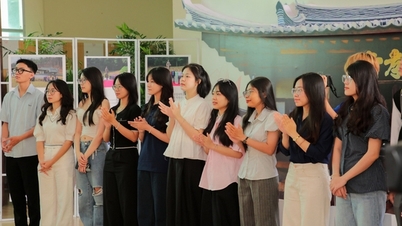














![[Photo] Where the history of resistance comes alive with modern technology at "95 years of the Party Flag lighting the way"](https://vphoto.vietnam.vn/thumb/1200x675/vietnam/resource/IMAGE/2025/9/12/81c1276f52b849c8b16e2d01dd1c85e4)







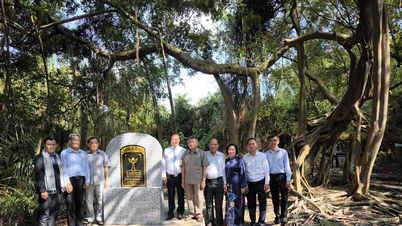
































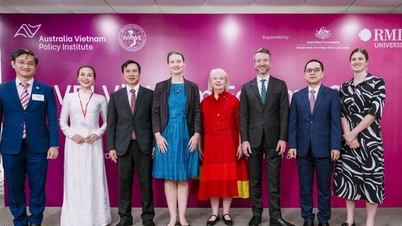


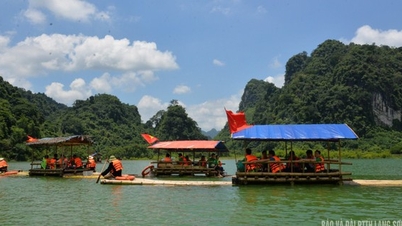









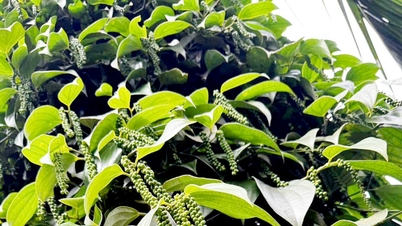
















Comment (0)